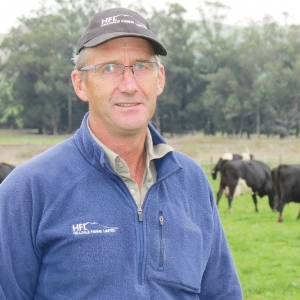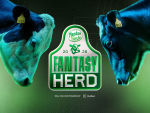Hunt makes no secret of having suffered from depression and, as a result, is urging others to be on the lookout for signs of depression in their neighbours and colleagues.
“When you get depressed you’re not in control of the situation. One of the first things you do is stop making good decisions. You lose your decision-making ability. I can look back and see that quite clearly, but you don’t recognise it at the time. In my experience most cases of animal welfare problems are due to someone suffering from depression. Most farmers don’t treat their animals badly.”
Hunt says for him it started with lack of sleep – about three hours a night. Then he stopped eating properly and his body began to wind down. “Then I’d get panic attacks and these are the most fearsome thing. You get in a panic and your heart is racing at a thousand miles an hour and you don’t even know why you are in a panic but you are. Panic attacks are very bad for you.”
A serious problem that creeps in is you fail to listen to good advice, Hunt says. And though outwardly he could present a reasonably good face, when he looked at pictures of himself when he was depressed he hardly recognised himself.
Hunt found help in the form of counseling and medication. He stresses that anyone suffering from depression should stick with one doctor to get good consistent treatment. He was fortunate in having income protection insurance, which yielded unexpected bonuses.
“Insurance companies don’t like paying you so they want to get you well. So the insurance company I used provided all sorts of help and I got a lot of counseling paid for. Having that insurance opened a whole lot of doors to help that probably wouldn’t have come to me otherwise.”
Hunt observes that farmers are independent and individualistic and don’t ask for help easily, instead solving their daily problems and not, because of their nature, nature given to asking for help.
So outsiders should not be afraid to intervene and offer help if they think there’s a problem. “There are some obvious signs: someone’s animals aren’t being attended to at their normal standard, or you don’t see them about the farm because they may be hiding in the house. Their physical appearance may be changing because they are not eating and sleeping.
“Don’t be afraid to ask someone if they need a hand. You might feel you are interfering but it’s better to try to offer help than offer no help. If someone picks up a gun it’s a bit late to say ‘Oh dear I did notice something’.”
















